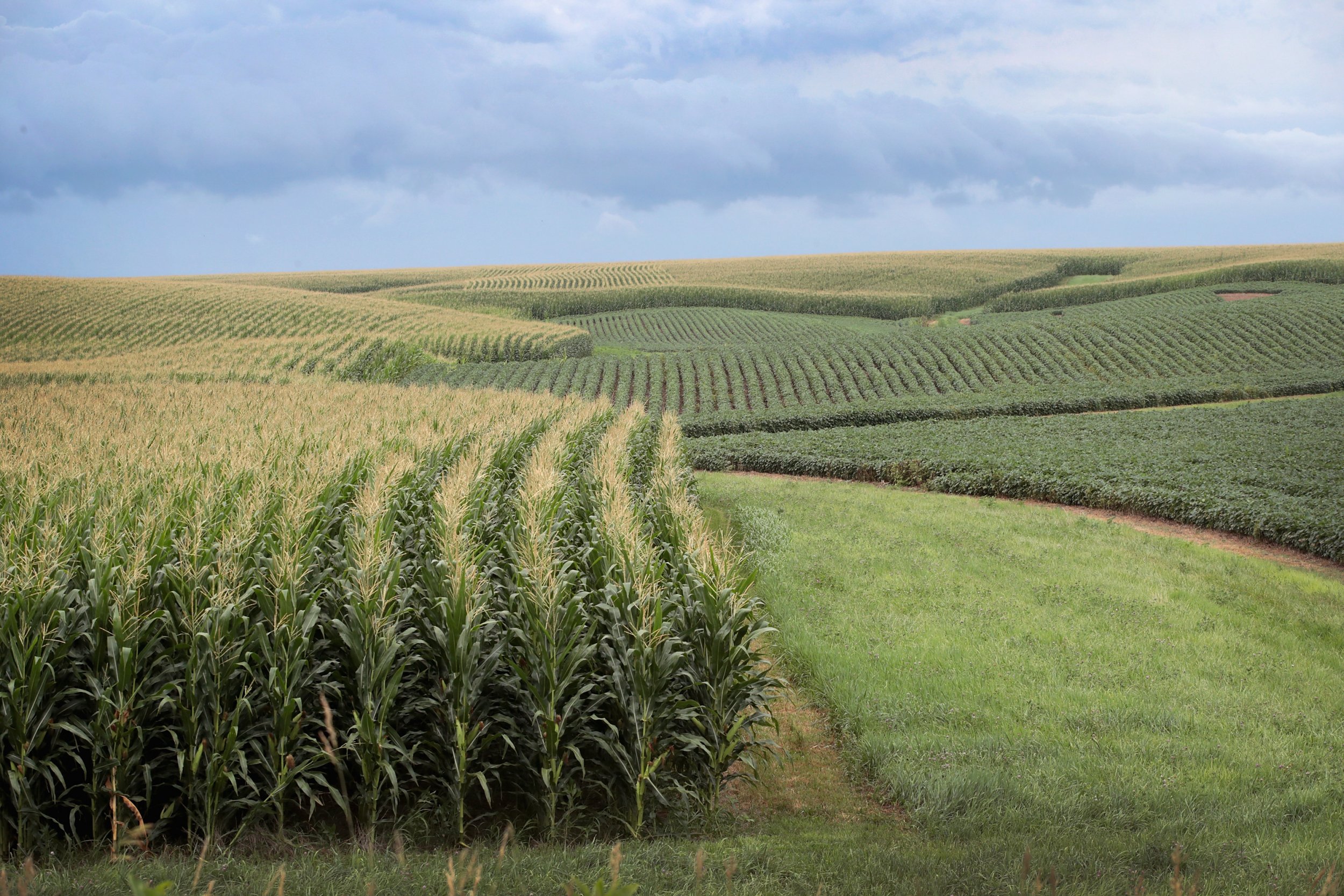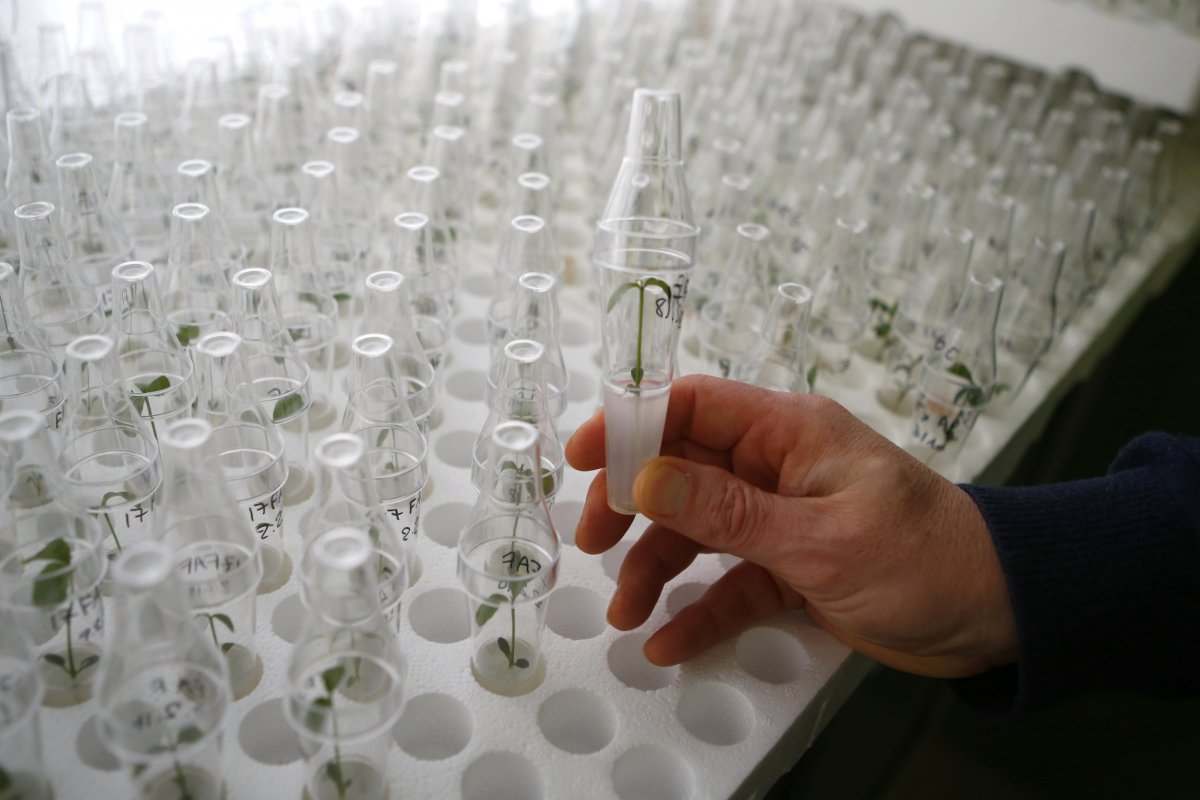
The world's food system must be altered radically if we are to sustainably feed 10 billion people—the estimated global population in 2050—experts warn.
These changes will involve a shift toward healthier, plant-based diets; drastically cutting down on food loss and waste; and improving agricultural practices and technologies, according to a study published in the journal Nature.
"Whilst some research had been done on specific environmental and health impacts, for example on greenhouse gas emissions and diet-related disease mortality, there were no studies that provided a comprehensive overview of the various environmental impacts of the food system, how to reduce them, and by how much they should be reduced," Marco Springmann, lead author of the study from the University of Oxford, in the U.K., said in comments provided to Newsweek.
"That's why we decided to conduct a new and more comprehensive study into the environmental limits of the food system."
For their research, Springmann and colleagues constructed a global model of the food system—the processes and infrastructure involved in feeding the global population—which tracked the consumption and production of food across the world to study its environmental impacts.
Using this model and estimates of current and future food demand, the authors quantified food-related environmental impacts in 2010 and 2050 for five areas: greenhouse gas emissions related to climate change; cropland use related to land-system change; the extraction of freshwater resources; and the use of fertilizers in farming.
They found that if no action is taken to counteract the expected changes in the world's population and the Westernization of diets, the environmental impacts of the food system could increase 50 to 90 percent by 2050.
"The global food system has fundamentally altered our planet and the resource base humanity depends on," Springmann said.
"Food production is responsible for about a quarter of all greenhouse gas emissions and therefore a major driver of climate change. Agriculture occupies more than a third of the Earth's land surface and has led to reductions in forest cover and loss of biodiversity. Farming also uses more than two-thirds of all freshwater resources, and the over-application of fertilizers in some regions has led to dead zones in oceans."
According to the authors, the study is the first to quantify how food production and consumption affect Earth's "planetary boundaries," which could be breached if sufficient action is not taken.
"At that point, those environmental pressures would exceed key planetary boundaries that define a safe operating space for humanity, beyond which Earth's vital ecosystems could become unstable," Springmann said. "Crossing planetary boundaries would increase the risk of destabilizing essential ecosystems."
The authors argue that no single measure can sufficiently mitigate the projected increase in environmental pressure. Fortunately, a combined approach could help us to make the food system sustainable. This would involve three key changes.
First, there needs to be a switch toward healthy and more plant-based diets around the world. This could reduce greenhouse gas emissions from the food system by half and also reduce other environmental impacts, such as those from the use of fertilizer, cropland and freshwater, by as much as a quarter.
Second, improved farming practices and technologies will be needed to limit pressures on agricultural land, freshwater extraction and fertilizer use. Increasing agricultural yields from existing cropland, balancing the application and recycling of fertilizers and improving water management could, in combination with other measures, reduce these impacts by around a half.
Last, the world needs to halve the massive amounts of food loss and waste that are inherent to the global food system if we are going to stay within the planet's environmental boundaries. If this is achieved, the environmental impacts of the food system could be reduced by up to a sixth.
Many of the solutions analyzed in the study are already being implemented in some parts of the world. However, implementing them globally will be no easy task, requiring strong coordination and rapid upscaling to be effective and not just limited to more affluent countries.

"Improving farming technologies and management practices will require increased investment in research and public infrastructure, the right incentive schemes for farmers—including support mechanisms to adopt best available practices—and better regulation, for example of fertilizer use and water quality," Springmann said.
"Tackling food loss and waste will require measures across the entire food chain, from storage and transport, to food packaging and labeling, to changes in legislation and business behavior that promotes zero-waste supply chains," he added.
Meanwhile, comprehensive policy and business approaches are essential to make dietary changes more attractive for large numbers of people. Potential initiatives could include school and workplace programs, economic incentives and labeling and altering national dietary guidelines to align with the current scientific evidence regarding the environmental impacts of diet.
Peter Horton, Research Adviser from the Grantham Centre for Sustainable Futures at the University of Sheffield, U.K., who was not involved in the latest research, said this study provides compelling evidence that the way we produce and consume food is unsustainable, and then sets out the necessary actions looking forward. Despite this, he points out that there has to be a realization of the complexity diversity, connectivity and unpredictability of the agri-food system.
"The suggested changes need to be empirically tested in specific local contexts, and knowledge gained fed back into decision making—what are the effects, do they bring about the desired change, are the changes sustained, are there unforeseen side effects, are they scalable etc.," Horton said. "Testing, evaluation and implementation requires unprecedented levels of collaboration across different sectors."
"Because food is ultimately highly personal and cultural, embedded with emotion and preference, it is through citizen pressure that such change will be initiated, although studies suggest also the huge importance of political leadership to carry them forward," he added. "Whether such leadership will emerge remains to be seen."
He also notes how the study overlooks the key environmental impact of food production on the world's topsoil—one-third of which is acutely degraded and lost due to the intensification of agriculture.
"Soil degradation and loss is made worse by extreme climatic events," he said. "If current rates of depletion continue—25 billion tonnes of soil annually—the U.N. Food and Agriculture Organisation estimates top soils will be gone within 60 years with huge economic costs and the threat of food insecurity for billions of people. This is a potential global catastrophe. Technological solutions to reduce the environmental impact of food production have to include conservation and regeneration of soil."
The latest study is released after the publication of a landmark report from the Intergovernmental Panel on Climate Change (IPCC), commissioned at the 2015 summit that brokered the Paris climate agreement, which outlines what's at stake in the world's bid to limit global temperature rise to 1.5℃.
Like the Nature study, the IPCC report states that reducing meat consumption is one of several lifestyle changes that everyone can make to help cut down on greenhouse gas emissions worldwide.
This article has been updated to include additional comments from Peter Horton.
Uncommon Knowledge
Newsweek is committed to challenging conventional wisdom and finding connections in the search for common ground.
Newsweek is committed to challenging conventional wisdom and finding connections in the search for common ground.
About the writer
Aristos is a Newsweek science reporter with the London, U.K., bureau. He reports on science and health topics, including; animal, ... Read more
To read how Newsweek uses AI as a newsroom tool, Click here.








